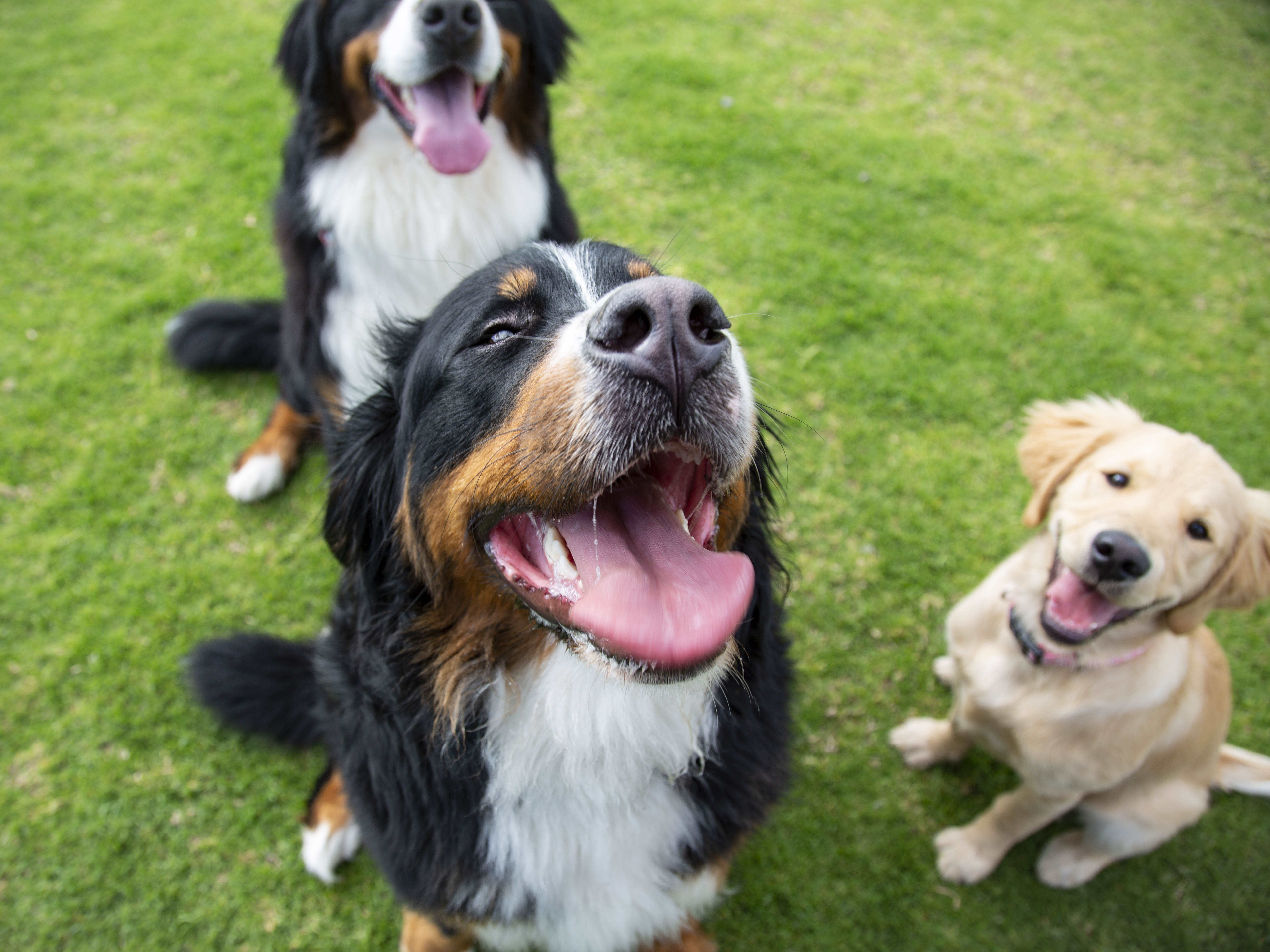
Parenting advice, hot topics, best buys and family finance tips delivered straight to your inbox.
You are now subscribed
Your newsletter sign-up was successful
Did you know that, just like humans, our pet pooches can experience signs of depression too?
Of course, it's hard to imagine that our canine companions, with their wagging tails, excitable playing, and fun-loving nature might experience feel low in mood.
But according to science, dogs are like us in many ways, and one of those ways is that we actually share many of the same neurochemicals as our pet dogs.
Because of that, dogs experience adrenaline rushes and dips just like us, as well as hits and lows of cortisol, the stress hormone, meaning they too can be susceptible to feelings of low mood and depression, just like their human owners.
However, depression is arguably a more difficult thing to spot in dogs than in humans. Given that our four-legged friends are unable to properly communicate how they're feeling, drilling down into the nuance of their mood can be tricky. But there are ways to work out whether or not your dog is depressed, if you suspect that all might not be well when it comes to their mental wellbeing.

The pet experts at grain-free pet food brand Canagan, have revealed the signs we should be on the lookout for...
Signs of dog depression
- Low activity (if your dog is usually full of energy, they may be less full of beans if feeling depressed)
- Like humans, they may show little interest in things they previously enjoyed
- Excessive licking of their paws
- More time than is normal for them (each pup is different) spent sleeping
- Less interaction with other dogs - again, if this is not normal for them
- A change in their eating habits, such as not eating much, or being off cet
- Showing signs of anxiety in misbehaving, such as not responding to normal behavioural commands or whining etc
- Flattening of the ears
Overall, depression in dogs is arguably very similar to that of humans, so it's important to keep an eye on it if you think your dog may not be feeling themselves.
Parenting advice, hot topics, best buys and family finance tips delivered straight to your inbox.
Dog depression: why do dogs get low moods?
Again, just like humans, dogs can be depressed for any number of reasons, although it often relates to a change in their normal routine - which is one of the most important things for a happy, content pooch.
Canagan explain that major life events can contribute to dog depression, such as a distressing event. This could perhaps be the loss of their owner, a big health upset (such as an operation or illness), or a big house move, to somewhere that they are unfamiliar with, and where they might not have their usual comforts.
MORE: Is your dog overweight? Here's how to help your overweight pet lose weight
Further to that, a change in the home, such as a new baby, another pet, or a new partner, could also cause feelings of depression in your dog.

Dogs can even feel depressed as a result of their owners own low mood or depression. Our furry friends are incredibly receptive to our own moods, so if you yourself are depressed, it is possible that your dog may be picking up on it, and, in empathy, feel depressed too.
Of course, the cause of dog depression varies depending on the animal, and what causes one dog to feel depressed may well not be the same for another.
How can you help your pet if they are experiencing dog depression?
Where dog depression may differ slightly to depression in humans is how long it lasts for. For lots of dogs, depression may only last between a few days to a few months, whereas in humans, the mental health issue can of course, be something you live with for years and years.
"Most dogs bounce back from depression within a few days to a few months with just a little extra TLC", said John Ciribassi, a past president of the American Veterinary Society of Animal Behavior, speaking to webMD.
MORE: Why does my dog eat grass? 10 weird dog behaviours explained
But how can you help your dog to feel better if they are feeling depressed, or showing signs of depression?
The experts over at Canagan advise that we should still be keeping our pet pooches active, even if they don't seem particularly interested in 'walkies'. Take them out regularly and play with them at home - after all, staying active can promote better feeling in the brain.

It's also important for them to socialise with other dogs, and not to be isolated. As with humans, social interaction can be a really positive thing for depression, even if they may not feel like it.
Offering your dog more attention can also be another way to get them back on an even keel. However, it's important not to overwhelm them with attention and allow them space, and also, not to reward their behaviour when they are exhibiting signs of anxiety or depression - such as giving them a treat when they are whining.
Finally, keeping their routine as stable and predictable as possible can also help hugely. As mentioned, dogs measure their happiness against routine, so even keeping little things the same, such as meal times and times you take them for a walk, can really help with low mood.
Canagan also note that dogs can be a brilliant mood booster for humans too. Studies have proven time and time again the benefit of animal interaction for human's mental health, so remember that your dog may also be a great source of joy and comfort to you if you are going through a difficult time.
Amy is Senior Digital Writer across Woman & Home, GoodTo and Woman, writing about everything from celebrity news to health, fashion and beauty features. When she isn't obsessing over the latest dress drop from Marks & Spencer, you'll most likely find Amy out running, or with a cup of tea in hand ready to dive into a gripping new Netflix series.